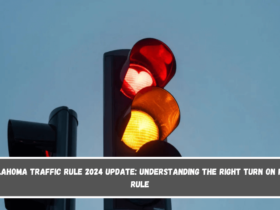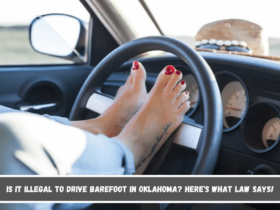It is against the law in California to drive while high on booze or any drug that makes you less able to drive. This is a very serious driving violation that can have big effects, especially for migrants whose residency status could be affected.
The Golden State has passed a law called AB60 that lets people from other countries get a driver’s license. The Department of Motor Vehicles (DMV) says that a police officer can charge someone who drives with a blood alcohol level that is too high.
Driving in California
The person could be caught and convicted, depending on how badly they are affected. In California, the DMV makes it clear that if a police officer thinks you are drunk while you are driving, you agree to a breath, blood, or urine test.
- Driving under the influence is a serious offense that can affect your legal status in the U.S.
- The AB60 legislation allows non-citizens to obtain a driver’s license in California.
- If suspected of DUI, you must submit to a breath, blood, or urine test.
All drivers, but especially immigrant drivers, need to know these rules in order to stay out of serious trouble with the law. To protect your rights and your right to live in California, stay informed and drive safely. If you drive while drunk, you could go to jail or have to pay big fines.
Understanding DUI Laws in California
If someone is caught for driving under the influence (DUI), or “driving while impaired,” the California Department of Motor Vehicles (DMV) must take away their license. If someone is arrested for DUI, the police officer can take away their license, give them a temporary one that is good for 30 days, and ask for an administrative review within 10 days of the arrest.
Consequences of a DUI Conviction
In addition to having their license restricted or taken away, people who are found guilty of DUI must also finish a DUI program, pay any fees related to the restrictions or renewal of their license, and may have to put an Ignition Interlock Device (IID) in their car. The person will have these charges on their record for 10 years. If someone breaks the law more than once, the court or DMV may give them harsher punishments.
- Completion of a DUI program
- Payment of fees for license restrictions or re-issuance
- Possible installation of an Ignition Interlock Device (IID)
- Conviction remains on record for 10 years
People who break the law more than once may face even harsher punishments. The court or DMV can give the person more punishments to make sure they understand how serious the crime is and how dangerous they could be to others.
To avoid harsh penalties and keep everyone on the road safe, it’s important to know and follow these rules. After being found guilty of driving while drunk, a driver may face the following extra punishments:

Additional Penalties for DUI Convictions
Beyond the revocation or suspension of driving privileges, the convicted individual is required to complete a DUI program for driving under its influence.
What Happens if I am Detained for DUI and I am an Immigrant?
A DUI law company called the Shouse California Law Group says that a non-U.S. citizen who is legally in the country will not usually be affected by a single DUI offense.
Under certain conditions, however, driving while drunk can lead to removal, being unable to enter the United States, or losing citizenship.
Experts say that a DUI charge could get the attention of people who are in the country illegally. California is a “sanctuary state,” which means that when police detain someone with an AB 60 license or arrest them for a minor crime (like a simple DUI), they do not contact U.S. Immigration and Customs Enforcement (ICE). However, these records are open to the public and can be used to find the person.
It is against the law in California to drive while drunk or high on any drug. This is an important rule that is meant to keep everyone on the road safe.
The Legal Consequences of DUI in California
It really is something that could be called a “moral turpitude crime.” This group includes a number of crimes that can make it impossible for someone to get permanent residency or change their status if they already have it. Experts stressed how important it is to tell immigration officials about these kinds of problems.
The Impact on Immigration Status
To avoid problems, remember that if someone is filing for residency and doesn’t tell the government about a DUI, it might hurt their chances of getting their status changed.
In addition, if the government sees a pattern of this behavior, even if it only happens twice, it could hurt the person’s immigration status, based on how bad the situation is.
- Crime of moral turpitude: DUI falls under this category, which can affect immigration proceedings.
- Reporting incidents: Failing to report a DUI can harm a person’s credibility in immigration cases.
- Recurrence of behavior: Multiple DUI incidents can severely impact one’s chances of obtaining or maintaining permanent residency.
It is essential for individuals navigating the immigration process to understand the severe implications of DUI offenses and to take appropriate actions to report such incidents to stay compliant with legal requirements.











Leave a Reply